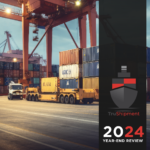Trade regulations are a crucial aspect of logistics, impacting how companies conduct business across borders. Understanding and navigating these regulations is essential for maintaining compliance and ensuring smooth operations.
Overview of Trade Regulations
- Import and Export Regulations
Regulations governing imports and exports vary by country and can significantly affect logistics operations. Compliance with customs requirements, tariffs, and trade agreements is vital for successful international trade.
Example: Companies must familiarize themselves with the Harmonized System (HS) codes, which classify products for tariffs and trade purposes. - Customs Compliance
Ensuring compliance with customs regulations is critical for avoiding delays and penalties. Businesses must maintain accurate records and submit proper documentation to customs authorities.
Strategy: Investing in customs compliance training for staff can enhance awareness and reduce errors in documentation. - Trade Agreements
Free trade agreements (FTAs) can significantly impact logistics costs and processes. Companies must stay informed about relevant agreements to take advantage of potential benefits, such as reduced tariffs.
Example: The United States-Mexico-Canada Agreement (USMCA) provides preferential trade terms that can lower costs for businesses trading in North America.
Challenges in Navigating Trade Regulations
- Complexity of Regulations
Trade regulations are often complex and can vary significantly between countries. This complexity can pose challenges for businesses seeking to expand internationally.
Solution: Working with trade compliance specialists can help businesses navigate regulatory landscapes effectively. - Frequent Changes in Regulations
Trade regulations are subject to frequent changes, influenced by political and economic factors. Companies must stay updated on these changes to maintain compliance.
Strategy: Regularly review regulatory updates and engage with trade associations to stay informed about changes that may impact operations. - Geopolitical Factors
Geopolitical tensions can lead to sudden regulatory changes that affect logistics operations. Companies must be prepared to adapt to these changes quickly.
Implementation: Develop contingency plans to address potential disruptions in international trade.
Best Practices for Compliance
- Conducting Regular Audits
Regular audits of trade practices can help identify compliance gaps and improve processes. These audits should cover documentation, customs procedures, and regulatory adherence.
Example: Companies that conduct regular audits are better positioned to identify and mitigate compliance risks. - Utilizing Technology for Compliance
Leveraging technology solutions can streamline compliance processes. Customs management software can automate documentation and ensure accuracy in reporting.
Implementation: Invest in integrated compliance software that tracks regulations and facilitates documentation. - Training and Education
Ongoing training and education for staff involved in trade compliance are essential. Regular training sessions can enhance awareness and reduce errors in documentation.
Strategy: Create a training program that includes updates on trade regulations and compliance practices.
Conclusion
Navigating trade regulations in logistics is complex, yet essential for successful international operations. By understanding the regulatory landscape, adopting best practices, and investing in compliance technologies, companies can enhance their competitiveness and mitigate risks in the global marketplace.




